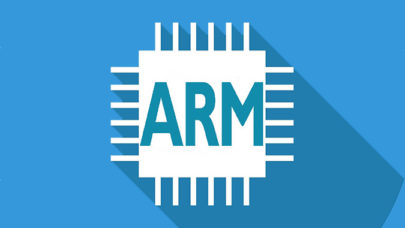
Meet TempoQuest, a Startup Bringing Weather Code Into the Accelerated Era
April 18, 2023
Weather and climate applications are some of the most important for high-performance computing, often serving as raisons d'être and flagship workloads for the Read more…

Nvidia Embraces Arm, Declares Intent to Accelerate All CPU Architectures
June 17, 2019
As the Top500 list was being announced at ISC in Frankfurt today with an upgraded petascale Arm supercomputer in the top third of the list, Nvidia announced its Read more…

Optimizing Key Plasma Physics Code for Latest-Gen Nvidia GPUs Yields Threefold Increase in Processing Speed
December 5, 2018
Experts at General Atomics (GA) have achieved a major improvement in processing speed for an important plasma physics code by working with experts from Nvidia t Read more…

OpenACC Talks Up Summit and Community Momentum at SC18
November 12, 2018
OpenACC – the directives-based parallel programing model for optimizing applications on heterogeneous architectures – is showcasing user traction and HPC im Read more…

An Overview of ‘OpenACC for Programmers’ from the Book’s Editors
June 20, 2018
In an era of multicore processors coupled with manycore accelerators in all kinds of devices from smartphones all the way to supercomputers, it is important to Read more…

OpenACC Shines in Global Climate/Weather Codes
November 14, 2017
OpenACC, the directive-based parallel programming model used mostly for porting codes to GPUs for use on heterogeneous systems, came to SC17 touting impressive Read more…

PGI Rolls Out Support for Volta 100 in its 2017 Compilers and Tools Suite
September 14, 2017
PGI today announced a fairly lengthy list of new features to version 17.7 of its 2017 Compilers and Tools. The centerpiece of the additions is support for the T Read more…

Optimizing Codes for Heterogeneous HPC Clusters Using OpenACC
July 3, 2017
Looking at the Top500 and Green500 ranks, one clearly realizes that most HPC systems are heterogeneous architecture using COTS (Commercial Off-The-Shelf) hardware, combining traditional multi-core CPUs with massively parallel accelerators, such as GPUs and MICs. With processor frequencies now hitting a solid wall, the only truly open avenue for riding today the Moore’s law is increasing hardware parallelism in several different ways: more computing nodes, more processors in each node, more cores within each processor, and longer vector instructions in each core. Read more…

- Click Here for More Headlines

Whitepaper
Transforming Industrial and Automotive Manufacturing
In this era, expansion in digital infrastructure capacity is inevitable. Parallel to this, climate change consciousness is also rising, making sustainability a mandatory part of the organization’s functioning. As computing workloads such as AI and HPC continue to surge, so does the energy consumption, posing environmental woes. IT departments within organizations have a crucial role in combating this challenge. They can significantly drive sustainable practices by influencing newer technologies and process adoption that aid in mitigating the effects of climate change.
While buying more sustainable IT solutions is an option, partnering with IT solutions providers, such and Lenovo and Intel, who are committed to sustainability and aiding customers in executing sustainability strategies is likely to be more impactful.
Learn how Lenovo and Intel, through their partnership, are strongly positioned to address this need with their innovations driving energy efficiency and environmental stewardship.
Download Now
Sponsored by Lenovo
Whitepaper
How Direct Liquid Cooling Improves Data Center Energy Efficiency
Data centers are experiencing increasing power consumption, space constraints and cooling demands due to the unprecedented computing power required by today’s chips and servers. HVAC cooling systems consume approximately 40% of a data center’s electricity. These systems traditionally use air conditioning, air handling and fans to cool the data center facility and IT equipment, ultimately resulting in high energy consumption and high carbon emissions. Data centers are moving to direct liquid cooled (DLC) systems to improve cooling efficiency thus lowering their PUE, operating expenses (OPEX) and carbon footprint.
This paper describes how CoolIT Systems (CoolIT) meets the need for improved energy efficiency in data centers and includes case studies that show how CoolIT’s DLC solutions improve energy efficiency, increase rack density, lower OPEX, and enable sustainability programs. CoolIT is the global market and innovation leader in scalable DLC solutions for the world’s most demanding computing environments. CoolIT’s end-to-end solutions meet the rising demand in cooling and the rising demand for energy efficiency.
Download Now
Sponsored by CoolIT
Advanced Scale Career Development & Workforce Enhancement Center
Featured Advanced Scale Jobs:
HPCwire Resource Library
HPCwire Product Showcase
© 2024 HPCwire. All Rights Reserved. A Tabor Communications Publication
HPCwire is a registered trademark of Tabor Communications, Inc. Use of this site is governed by our Terms of Use and Privacy Policy.
Reproduction in whole or in part in any form or medium without express written permission of Tabor Communications, Inc. is prohibited.
























